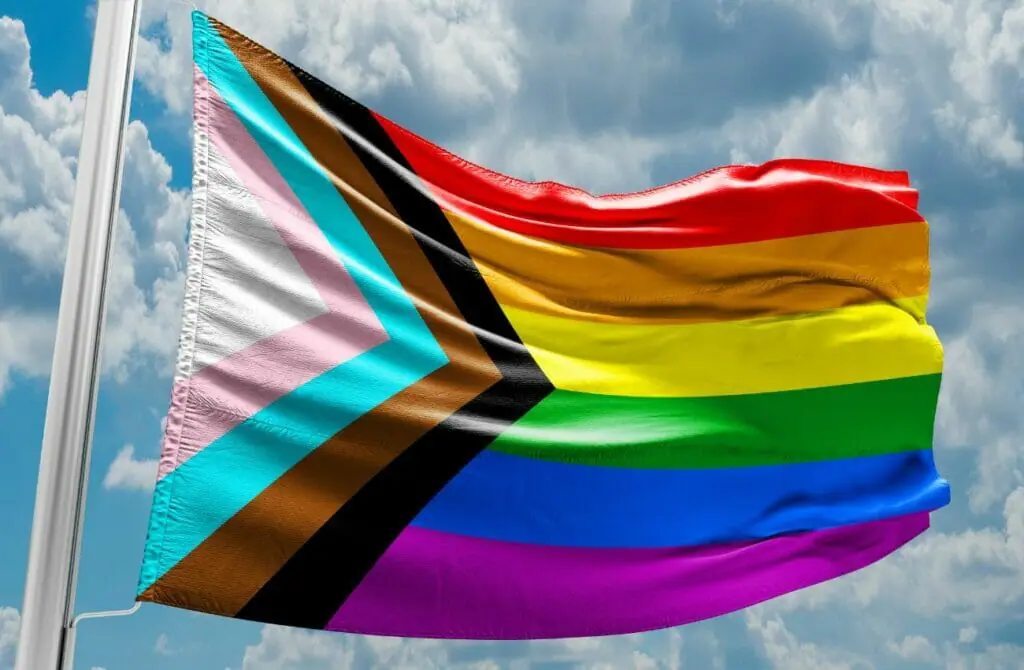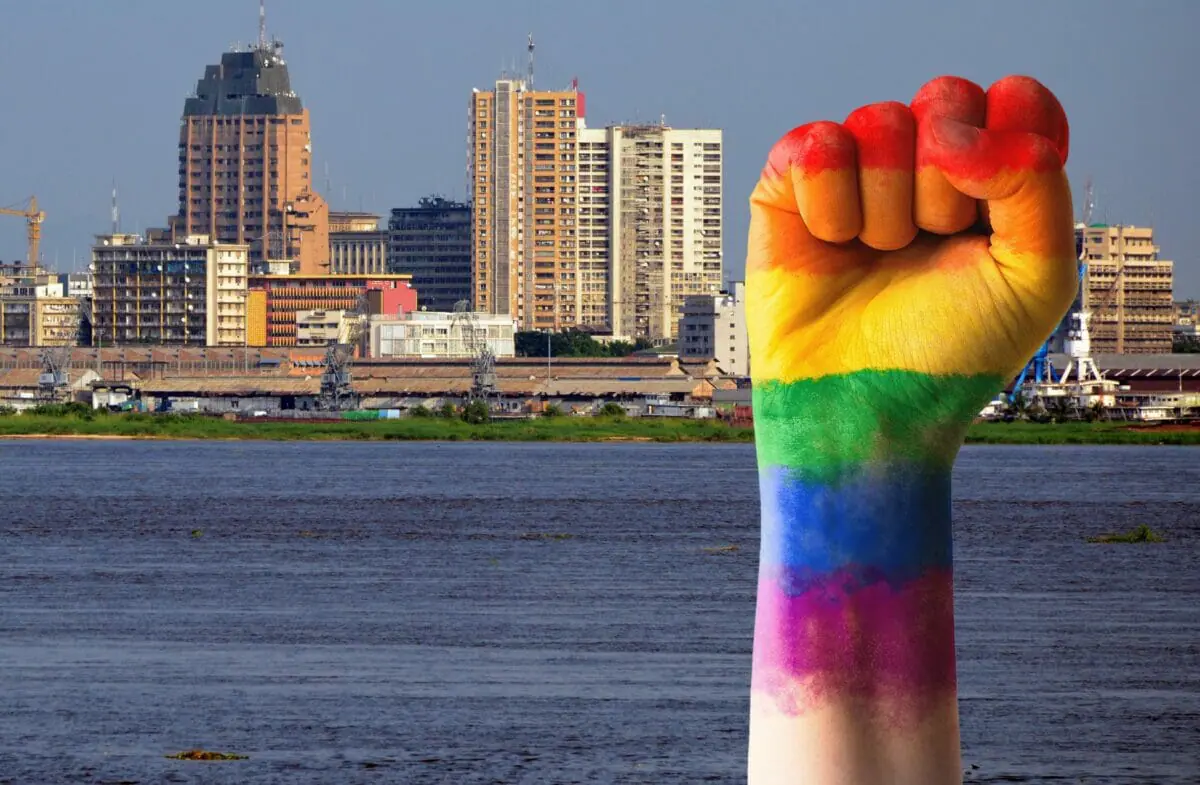LGBT rights in the Democratic Republic of the Congo (DRC) and the Republic of the Congo face unique challenges and varying degrees of legal protection. Both countries have their distinct legal stances on LGBT issues, which significantly impact both local citizens and international travelers seeking to navigate their rights and safety within these borders.
Though some progress has been made in recent years, systemic discrimination and legal challenges persist for the LGBT community in both Congos.
For local residents, achieving legal recognition and protection can often be an uphill battle, particularly in the DRC, where LGBT individuals continue to face discrimination. While same-sex sexual activity is legal in the Republic of the Congo, it is worth noting that same-sex couples do not enjoy the same legal protections as their opposite-sex counterparts.
Additionally, high levels of discrimination and abuse have been reported against the LGBT community, making the environment less than ideal for those seeking to openly express their identity.
Foreign travelers should remain vigilant given the fluidity of the situation in both countries, which may change quickly due to political factors or shifting societal attitudes.
As such, it is crucial to stay informed of current developments and seek advice from reputable sources before traveling. Additionally, those concerned about their rights and safety should consider reaching out to LGBT advocacy groups in the region for guidance and support.
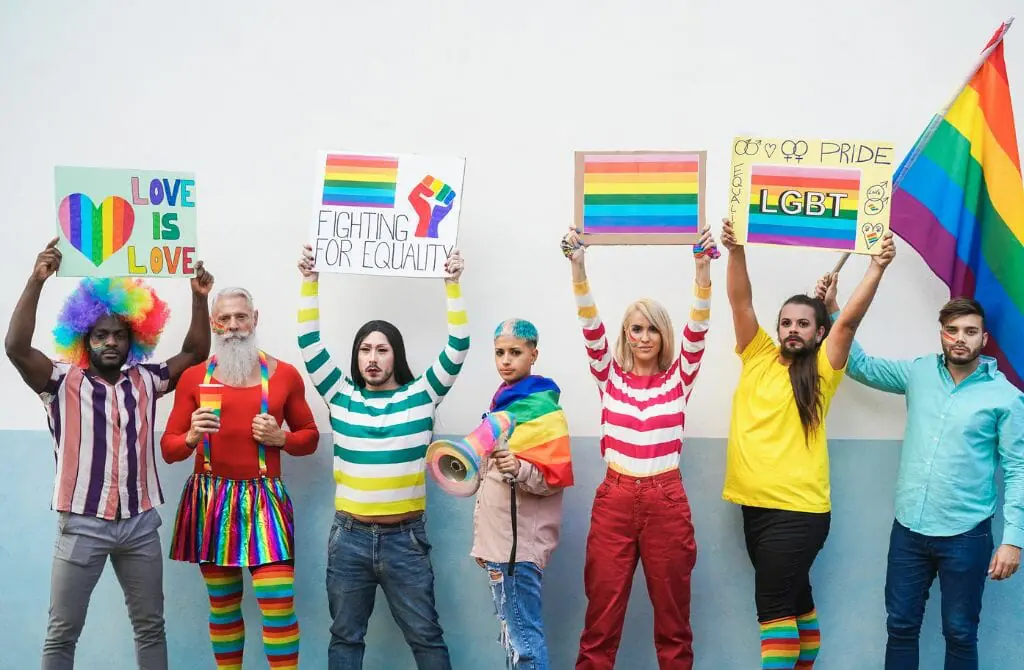
History Of LGBT Rights In Congo
In the Democratic Republic of the Congo (DRC), same-sex sexual activity is not explicitly criminalized, yet individuals who publicly engage in such activities sometimes face prosecution under public indecency provisions, which are not often applied to opposite-sex couples.
In the Republic of the Congo, both male and female same-sex sexual activity is legal, but same-sex couples and households headed by same-sex couples are not eligible for the same legal protections available to opposite-sex couples.
The DRC has ratified several international human rights instruments, which bind it to respect and protect the rights enshrined within them. All Congolese people, including members of the LGBTQI+ community, may turn to the UN Human Rights Committee through procedure 1503 if their rights are violated.
However, high levels of discrimination and abuse against LGBTQI+ individuals persist in the region, as same-sex couples and households are not provided the same protections as their heterosexual counterparts.
While there are no specific laws recognizing same-sex marriage or unions in either the Democratic Republic of the Congo or the Republic of the Congo, the International Lesbian, Gay, Bisexual, Trans, and Intersex Association (ILGA) continues to advocate for equal rights of LGBTQI+ individuals around the world, including in these countries.
The situation for LGBTQI+ individuals, both locals and tourists, may vary considerably depending on the location and circumstances. Therefore, it is crucial for travelers to remain vigilant and be aware that the situation can change quickly. Always seek current advice before traveling and be mindful that there are bad actors in every country.
Several groups advocate for LGBTQI+ rights in the region; however, it is essential to be cautious and discreet when seeking help or advice from these organizations. The landscape of legislation and public opinion can evolve, so it is important to stay informed and up to date with the latest developments in the LGBTQI+ rights movement in the Congo.
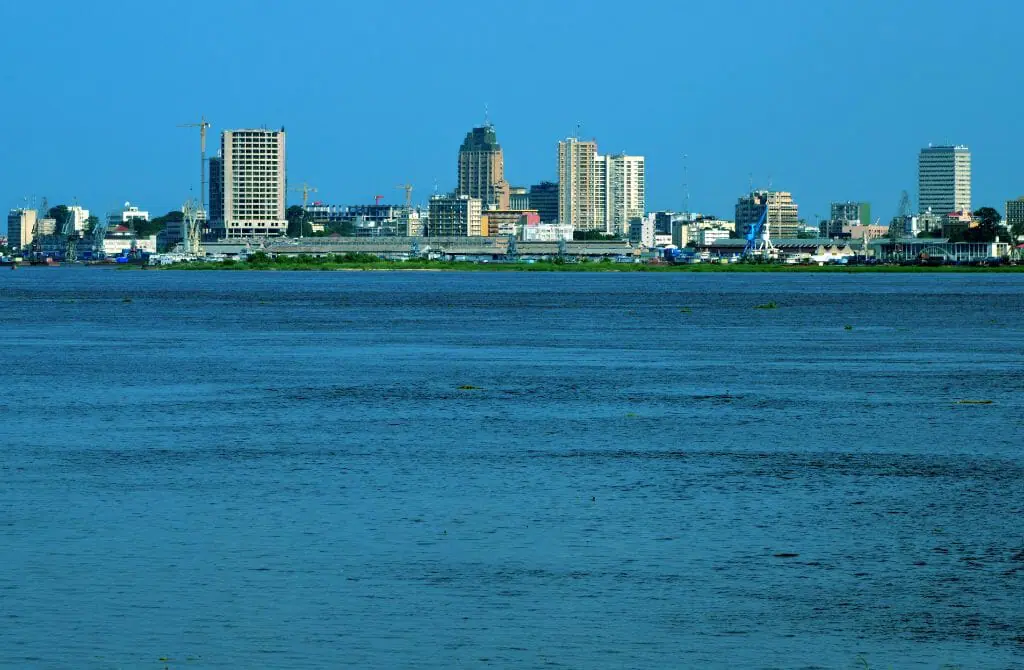
The LGBT Legal Situation In Congo
LGBT rights in the Democratic Republic of the Congo (DRC) and the Republic of the Congo vary by country, and it is important for locals and tourists alike to understand the legal landscape. In the DRC, same-sex sexual activity is legal for both males and females, although LGBT individuals may occasionally be targeted for prosecution under public indecency provisions.
The Congolese Constitution, in its first paragraph of Article 40, explicitly defines marriage and the family as reserved for straight couples, and there is no legal recognition of same-sex couples in the country. Despite this, some reforms have been made, such as equal age of consent laws.
However, legal protections for LGBT individuals are absent, with no anti-discrimination laws or legislation pertaining to housing and employment discrimination.
In the Republic of the Congo, both male and female same-sex sexual activity is legal. However, the same legal protections available to opposite-sex couples are not extended to same-sex couples. Reports of high levels of discrimination and abuse against LGBT people are not uncommon.
Additionally, adoption by single individuals is allowed, but same-sex couples face restrictions. There are no specific censorship rules for LGBT-related topics, but the legal recognition of non-binary gender remains unclear.
It is important for everyone to remain vigilant and aware of the fact that situations can change quickly, and information might become outdated. Moreover, bad actors exist in every country and may hold different views on sexual orientation and gender identity. Always check for recent updates and seek advice from local LGBT advocacy groups before traveling to the region.
When discussing the rights of LGBT individuals in Africa, it is necessary to be professional and authoritative while emphasizing the importance of legal protections and anti-discrimination laws. The United Nations Human Rights Council plays a crucial role in advocating for the rights of LGBT individuals worldwide, and continuous monitoring of the situation will be essential to ensuring a safe and inclusive environment for all.
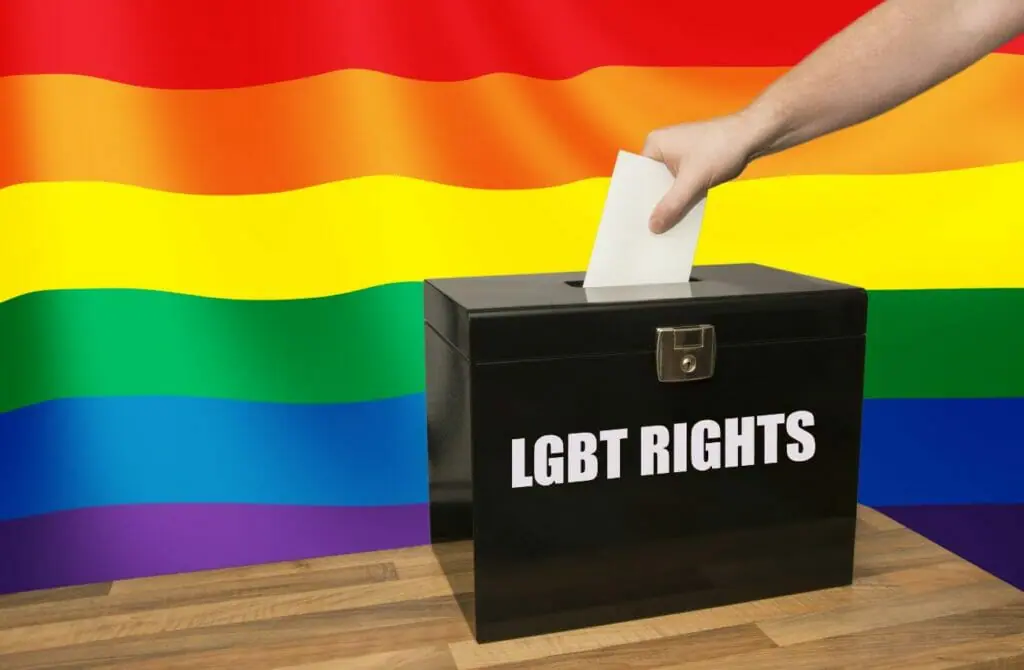

The LGBT Social Situation In Congo
In both the Democratic Republic of the Congo (DRC) and the Republic of the Congo, LGBT individuals face numerous challenges. Discrimination, violence, and exclusion affect their lives in various aspects. While same-sex sexual activity is legal in the Republic of the Congo, it is not met with the same legal protections afforded to opposite-sex couples. In the DRC, while homosexuality is legal, censorship of LGBT-related content and expression is subjected to imprisonment.
In both countries, the LGBT community faces significant stigma, hostility, and opposition from societal and religious groups. Violence, harassment, and even instances of torture against LGBT individuals have been reported, often involving police, security forces, and the army.
Additionally, provisions of goods and services, living conditions, and human rights for LGBT people are severely lacking. This is often due to widespread corruption, power disparities, and ongoing conflicts within the region.
Local LGBT advocacy groups work tirelessly to raise awareness, promote tolerance, and improve conditions for LGBT people in Congo. These organizations are essential in gaining accurate and up-to-date information pertaining to LGBT rights and safety.
It is essential for both locals and tourists to remain vigilant as the situation can change rapidly. Seek current advice from reliable sources and maintain contact with local LGBT advocacy groups, as they provide valuable information and support.
Steps to protect oneself could include keeping a low profile, avoiding discussions about one’s sexual orientation, and practicing discretion in public. Remember that the internet, media, and even religious leaders could expose individuals to hate speech, stigmatization, or misinformation about LGBT rights.
While advancements have been seen in some African countries regarding LGBT rights, Congo’s situation remains complex and challenging. Individuals must stay informed, exercise caution, and remain aware to navigate the social and legal landscape.
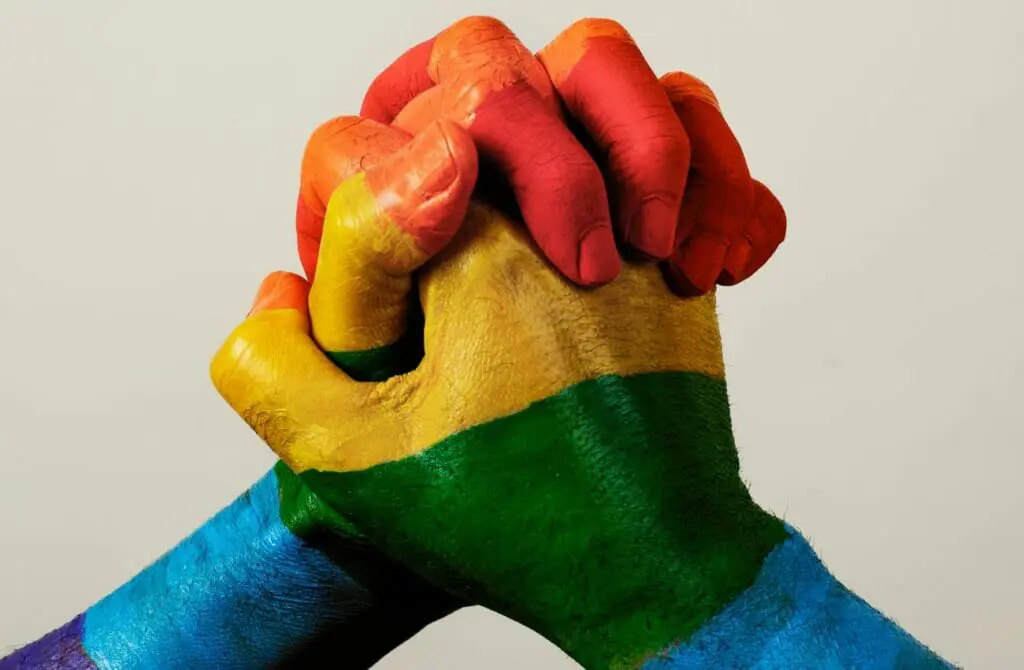
Trans Rights In Congo
In the Democratic Republic of the Congo (DRC), the law does not explicitly provide transgender people with the right to change their legal gender. Public attitudes in the country are generally not friendly towards transgender and intersex individuals, which poses challenges for the local LGBTI community, including the transgender population.
Transgender people in the Republic of the Congo face a similar situation. Although same-sex relationships have been legal in the country since 1940, legal recognition of non-binary gender identities and the right to change one’s legal gender are not explicitly addressed in existing laws. Consequently, transgender and non-binary individuals may face difficulties in obtaining legal documentation that accurately reflects their gender identity.
Despite the lack of explicit legal recognition and protection, there are organizations in the region working towards promoting LGBTI rights, including those for transgender people. One such group is the East African Sexual Health and Rights Initiative, which conducted a study in 2017 analyzing the human rights situation of LGBTI persons and sex workers in the Democratic Republic of Congo.
For those traveling to either the Democratic Republic of the Congo or the Republic of the Congo, it is prudent to remain aware of the local situation concerning LGBTI rights.
This includes understanding that attitudes and laws can change rapidly and obtaining up-to-date information from reputable sources prior to the trip. Staying vigilant and exercising caution during travel will better ensure the safety and well-being of the individual by avoiding potential misunderstandings or conflicts.
In conclusion, transgender rights in both the Democratic Republic of the Congo and the Republic of the Congo are an area in need of attention and advocacy. Local and regional organizations continue to work towards improving the rights and acceptance of transgender individuals in these countries.
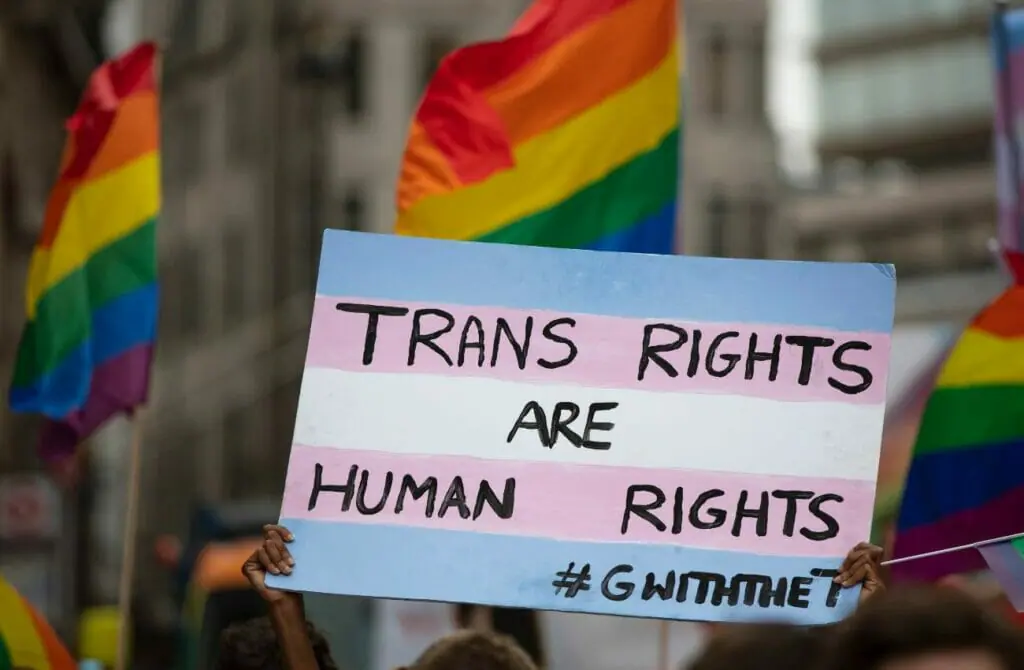

The Future For The Queer Community In Congo
The future of LGBT rights in Congo faces a complex landscape, with both political and legal challenges affecting the local population and tourists alike. While same-sex sexual activity is legal in the Republic of the Congo, it remains a sensitive topic in the Democratic Republic of the Congo.
Legal recognition and discrimination protections are not widely available, and there is no recognition of same-sex marriage or relationships in both countries.
Furthermore, step-child adoption and commercial surrogacy remain unresolved matters. Blood donation by LGBT individuals is another issue to consider, as policies may vary and be subject to change over time. As for reader safety, it is crucial to stay informed about current policies and practices, as situations can change rapidly.
In order to achieve progress in LGBT rights, it is important for both local activists and international organizations to continue advocating for legal recognition and discrimination protections. This might include raising awareness, promoting acceptance and understanding, and working with government agencies and other stakeholders to draft and implement necessary legislation.
In the meantime, travelers and locals alike should remain vigilant and exercise caution when discussing LGBT rights or engaging in activities that might attract unwanted attention. It is always essential to be aware of local customs and traditions to ensure personal safety.
Seeking advice from local LGBT advocacy groups and staying updated on current information can help individuals navigate the ever-evolving political and social landscape. By fostering a professional and cautious approach to LGBT rights, the future can gradually become a more inclusive and accepting environment for the diverse communities of Congo.
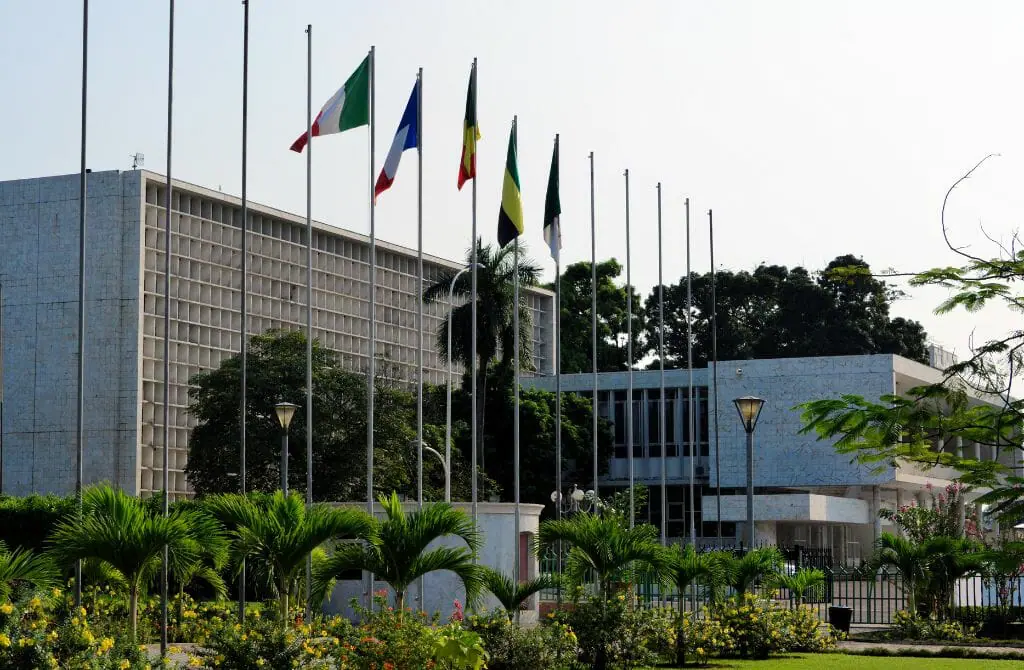
Protect Yourself While Travelling In Gay In Congo
LGBT rights in Congo vary between the Democratic Republic of the Congo (DRC) and the Republic of the Congo. In both countries, same-sex marriage is not legally recognized and there are no anti-discrimination laws protecting sexual orientation or gender identity. Employment, military service, and other sectors lack legal protection for LGBT individuals.
Additionally, family rights, such as IVF and surrogacy, are not covered for LGBT couples. These factors contribute to challenging living conditions for the LGBT community in Congo.
It is essential for both locals and tourists to be aware of the current situation and take steps to protect themselves. One should always remain vigilant, as situations can change quickly, and information can become outdated. Seek current advice before traveling or engaging in activities that might put you at risk with local authorities, particularly if you are a member of the LGBT community.
Be cautious when dealing with employment, military, police, security forces, and security services, as these institutions may lack understanding and sensitivity towards LGBT rights. It is advisable to navigate these institutions with discretion and to avoid disclosing your sexual orientation or gender identity unnecessarily.
In terms of support and advocacy, seek out relevant LGBT organizations that might offer guidance and assistance. One such group is the East African Sexual Health and Rights Initiative, which has conducted studies on the human rights situation of LGBT individuals in the Democratic Republic of Congo.
By engaging with these organizations, you may find valuable resources and a network of people to help you better navigate the local environment.
In conclusion, while the situation for LGBT rights in Congo remains challenging, being informed, cautious, and connected to a support network can help protect yourself and maintain a safe environment in a rapidly changing landscape.
